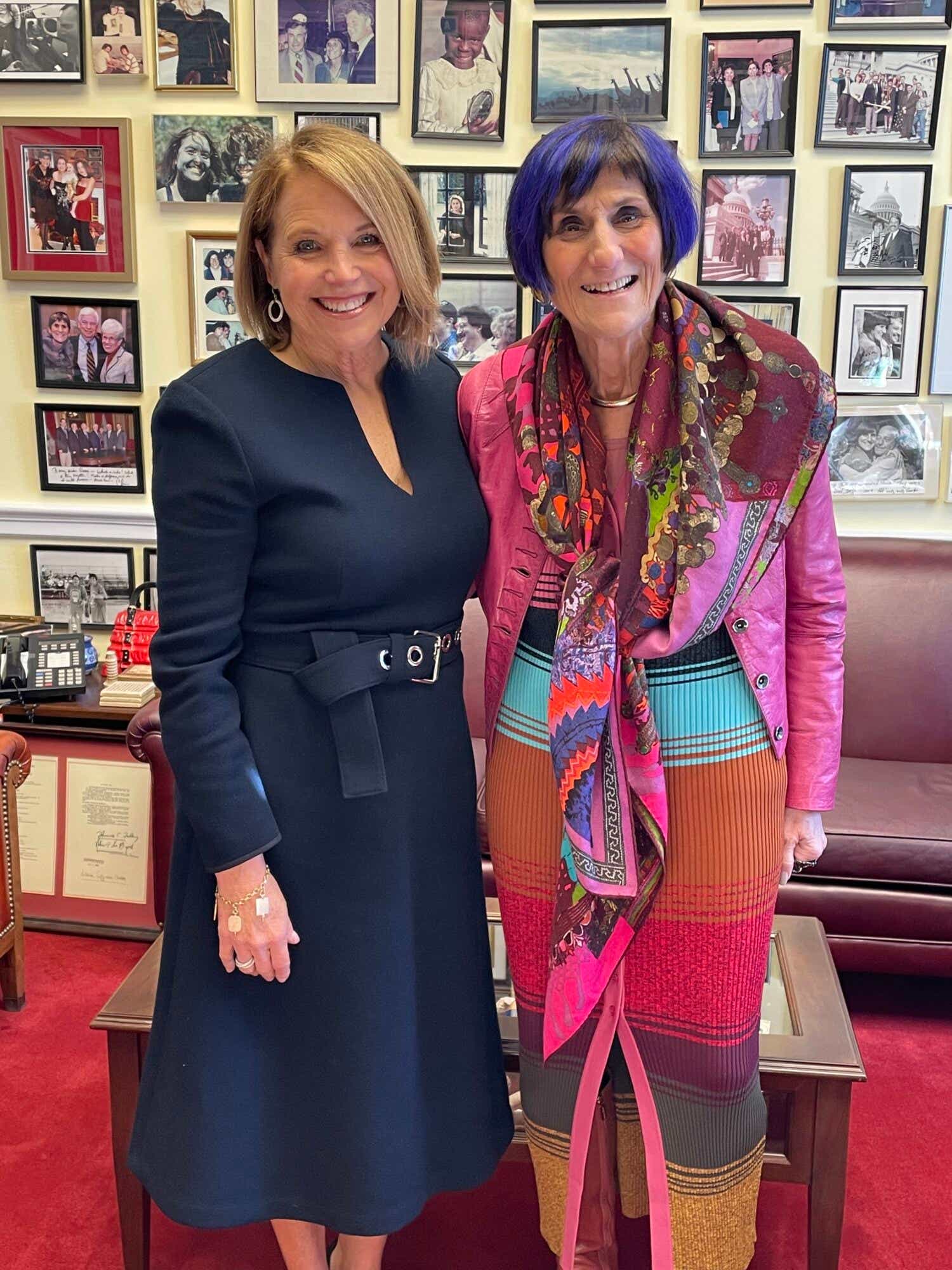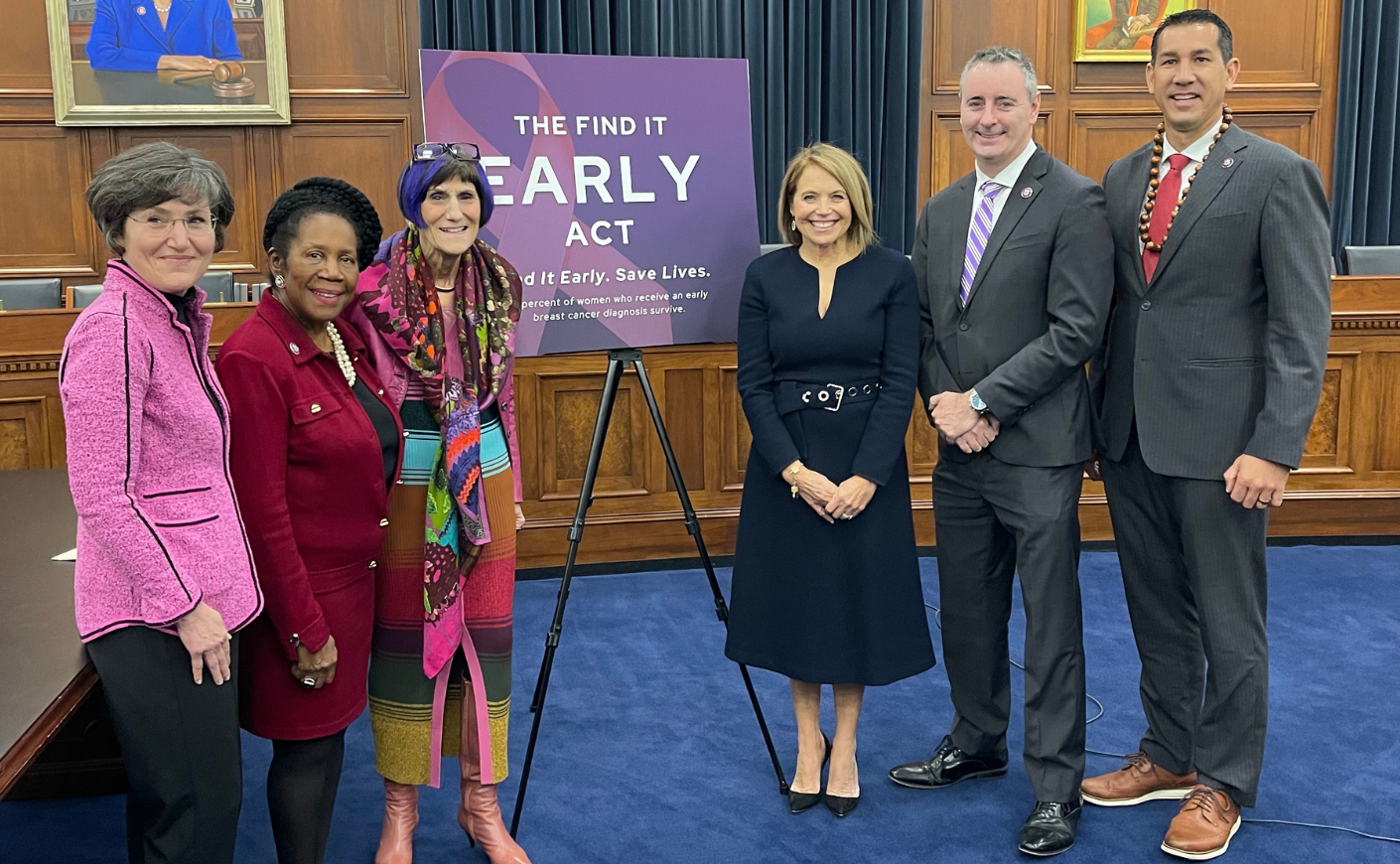Yesterday I was on Capitol Hill to announce the introduction of the Find It Early Act with Representatives Rosa DeLauro (D-Conn.) and Brian Fitzpatrick (R-Pa). This act will require insurance companies to cover additional screenings (such as breast ultrasounds and MRIs) without a copay for the millions of women in this country who have dense breasts. Here are the remarks I made at a press conference in the Rayburn Building.
Last June, like one in eight women, I was diagnosed with breast cancer. Like the 85 percent of women who are told they have breast cancer, I have no family history. I’ve lost loved ones to cancer: my husband Jay at 42 and my sister Emily at 54 — both were life-shattering. Hearing those three words myself — you have cancer — was scary. But I am incredibly lucky because my cancer was detected early. As a result, my cancer is not only treatable. It’s curable.
In my case, my breast radiologist was able to detect my cancer early because I had both a mammogram and a breast ultrasound. Breast ultrasounds have been part of my screening routine for many years now, because like nearly half of all women 40 and over, I have dense breasts — which not only increases my risk of breast cancer, it makes it difficult to detect abnormalities with mammograms alone. In fact, doctors often say doing a mammogram on dense breasts is like trying to find a snowball in a field of snow. That’s why it was so important for me to have a breast ultrasound, which clearly showed I had a suspicious tumor that a biopsy later confirmed as cancerous.
I have access to the best healthcare money can buy. But no woman should have to forgo a life-saving screening because insurance doesn’t cover it. It’s simply not right. As my breast radiologist put it, it’s a disgrace.

Historically, women’s healthcare has been given short shrift. When it comes to breast cancer, we need to ensure that every woman is not only notified that they have dense breasts (and we’re talking about nearly half of all women) but told that they need additional screening. That’s something the FDA is trying to fix — because right now, while 38 states require healthcare providers to inform patients they have dense breasts, they aren’t specific enough when it comes to telling patients what that means and what they need to do with that information. And when patients are properly informed, they often forgo additional testing, like breast ultrasounds or MRIs, because they can’t afford it or their insurance doesn’t cover it. The Find It Early Act will help level the playing field for women who need and deserve to have thorough breast cancer screening.
We know that early detection saves lives. Cancer is most treatable when it’s caught in its earliest stages. This is especially true of breast cancer. Like me, everyone should have access to the technology that exists now that has the potential to save lives. Congresswoman Rosa DeLauro has been a true pioneer in this fight in the state of Connecticut. I’m grateful Congressman Brian Fitzpatrick of Pennsylvania, a Republican, is joining forces with Rosa on this legislation. The health of all women should be a bipartisan issue. Meanwhile women like Michele Young in Ohio — who was told her annual mammograms were fine until she learned they had missed a mass that resulted in metastatic breast cancer — have been tireless crusaders to get the law changed in their states. The Find it Early Act will ensure that every woman, in every state across the nation has access to the best possible screening technology. And it will save lives. And what’s more important than that?









